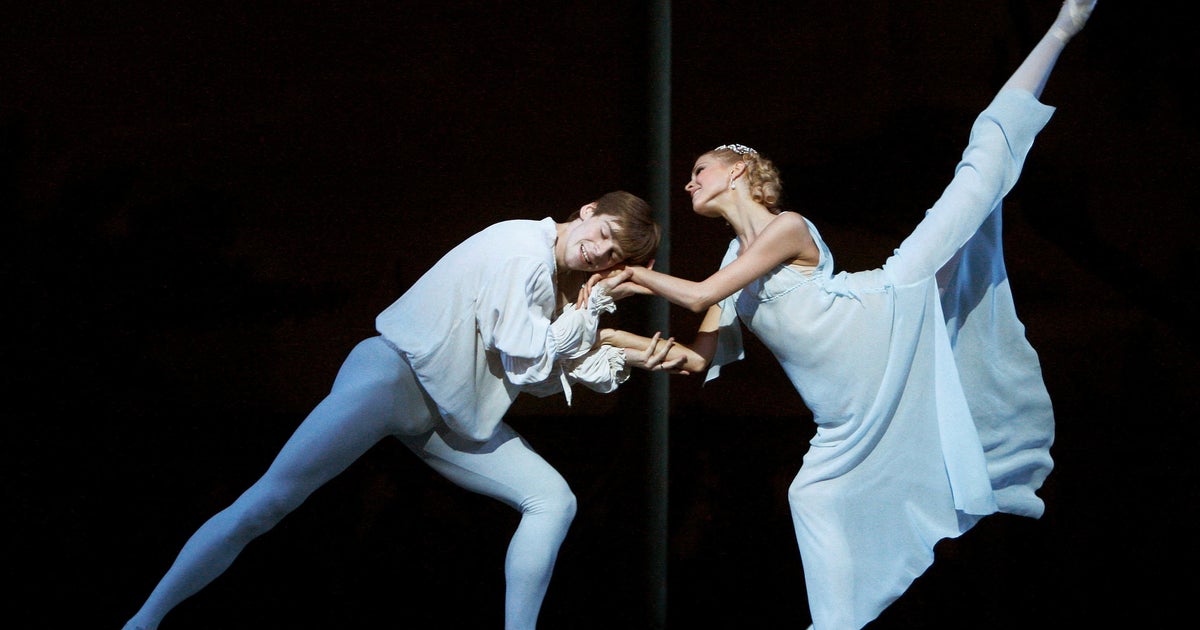2 Americans among those arrested at Georgia protest against controversial foreign agents law
Tbilisi — Hundreds of young Georgians crowded outside the Caucasus country's parliament on Monday after a night-long demonstration against a controversial "foreign influence" law that critics say was inspired by repressive Russian legislation. The ex-Soviet republic has been gripped by escalating protests for weeks over the bill that demonstrators say will sabotage the country's hopes of joining the European Union and erode democracy.
Georgia's Interior Ministry said Monday that 20 people were arrested throughout the morning, including three foreign citizens identified as two U.S. nationals and a Russian.
The ruling Georgian Dream party, which was forced to drop a similar bill last year after public outcry, is intent on passing the bill at a final hearing expected Tuesday, arguing the new rules will promote transparency.
The law requires non-governmental organizations and media outlets that receive over 20% of their funding from abroad to register as an "organization pursuing the interests of a foreign power."
"We are planning to stay here for as long as it takes," 22-year-old Mariam Karlandadze told AFP, as lawmakers pushed the bill through a legal committee. "This law means not joining Europe. This is something that I have wanted my whole life."
AFP journalists saw hundreds of riot police lining a street behind parliament, where law enforcement scuffled with protesters and carried out detentions. Authorities had warned people who blocked parliament would be arrested, but thousands defied the warning and came to the building's gates. Hundreds remained on the streets after the police moved in to make the arrests.
The European Union, which granted Georgia candidate status last year, urged Tbilisi to investigate reported acts of violence and praised Georgians' "impressive commitment" to European integration.
"We strongly condemn acts of intimidation, threats, and physical assaults against the protesters, against civil society activists, against politicians and against journalists and media workers," spokesman Peter Stano said.
One of the protestors, 26-year-old Ana Mirakove, said she was worried the standoff with police could become more violent at "any moment."
"No one here thinks it will be safe," she told AFP. "I see Georgia where it belongs: within the European Union and free to decide its own future."
The protests are being led by university students who had declared a strike and vowed to protest throughout the day. Many of them had stayed put overnight, wrapped in EU and Georgian flags. They burst into cheers when stray dogs ran barking after police cars.
Georgian Dream's critics say the party is reneging on commitments to integrate with Europe and that the bill will bring Georgia closer to authoritarian Russia.
Moscow passed a similar foreign influence law in 2012 and has used the rules to pile pressure on opposition-linked figures and advocacy groups.
"If this law passes we will slowly become Russia. We know what happened there and in Belarus. We know this scenario," said 26-year-old Archil Svanidze.
"We always knew we were part of Europe. Every generation knows about this — not only Gen Zs and millennials," he said, adding that his father was at the protest most of the night.
Georgian Dream — in power since 2012 — has portrayed the protesters as a violent mob and has defended the law as necessary for Georgian sovereignty. It brought back the bill in a shock move in April, a year after it was dropped after a backlash.
Its billionaire backer Bidzina Ivanishvili, who made his fortune in Russia, has accused non-governmental organizations of plotting a revolution and being foreign puppets.
The party also accused protesters of harboring links to their nemesis and former leader Mikheil Saakashvili, who had been detained on allegations of abusing his office.
"The irony is that they always criticize the last government as corrupt and brutal," 18-year-old Salome Lobjanidze said, who did not go to university lectures Monday to stand outside parliament. "If it goes through, many of the people standing here will leave (the country)."




